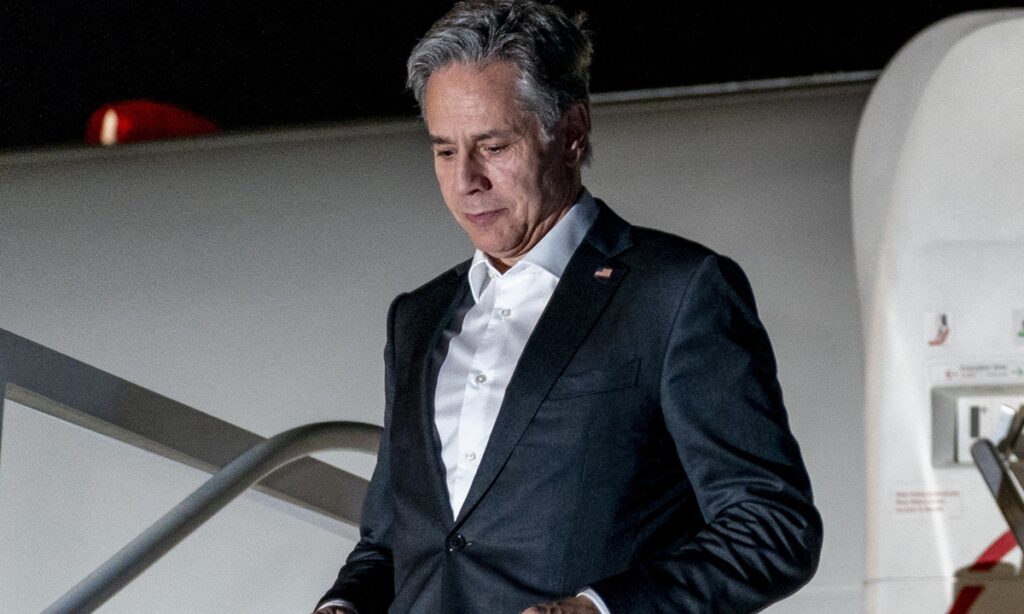US Secretary of State Antony Blinken set off for a four-nation trip to Africa on Sunday. Chinese experts said on Monday that the US may no longer have the capacity to stabilize West Africa, given the ongoing conflict in Ukraine and the escalating situation in the Middle East and Red Sea.
According to his itinerary, Blinken will start his trip in Cape Verde before visiting the Cote d’Ivoire, Nigeria and Angola, his first trip to sub-Saharan Africa in 10 months as he takes a break from focusing on the Israel-Hamas war.
US State Department spokesperson Matt Miller described the African nations as “incredibly important countries that require US engagement.”
Blinken is slated to discuss economic issues, as well as security, including the terrorist threat in the Sahel. He is also expected to discuss August’s military coup in Niger, which overthrew the elected leader of one of America’s top partners in the region, according to CNN.
One purpose of Blinken’s visit is to evaluate the implementation of the US-Africa Summit in December 2022 in African countries, as Nigeria is a key country for the US in Africa, and Angola is involved in the Lobito Corridor project, Shen Xiaolei, an associate research fellow at the Chinese Academy of Social Sciences in Beijing, told the Global Times on Monday. Located in Central Africa, the Corridor proposes building a railway line connecting critical minerals mines in Zambia and the Democratic Republic of the Congo (DRC) with the Lobito port in Angola.
The second is to discuss the security situation in West Africa and the Sahel region. Currently, these two regions are the most severely affected by terrorism in Africa, the expert said.
And the third purpose is to discuss the instability in the eastern part of the DRC, Shen noted. Angola is an important participant in the peace process in the eastern part of the DRC, and the US certainly wants to leverage Angola’s influence.
However, experts believed that given the escalating situation in the Middle East, particularly the worsening Red Sea crisis, the US no longer has the capability to stabilize West Africa.
In fact, following military coups in Mali, Burkina Faso, and Niger, the three countries have withdrawn from the G5 Sahel alliance and formed their own Sahel National Alliance, driving French troops out of the Sahel region and engaging in military cooperation with Russia. All this indicates it’s difficult for the US to stabilize West Africa. In addition, the US will certainly focus more on the Middle East and the Red Sea due to the turmoil there, and temporarily lacks the ability to pay attention to West Africa and the Sahel region.
Blinken’s visit to the region also comes days after Chinese Foreign Minister Wang Yi wrapped up his tour through Africa, during which he also visited Cote d’Ivoire.
In the current context of global power competition, the US has brought the competition among major powers to Africa, with China and Russia being its main targets, experts said. This has prompted some media outlets to suggest that Blinken’s visit to Africa implies a lack of goodwill toward China and Russia.
African development requires comprehensive cooperation with countries around the world, and as African countries gain more strategic autonomy, they have the ability to choose better cooperation partners and will not easily align themselves with any particular side, Shen noted. If Blinken’s trip to four African countries results in cooperation that meaningfully benefits the continent, we should welcome such outcomes, Shen said.
